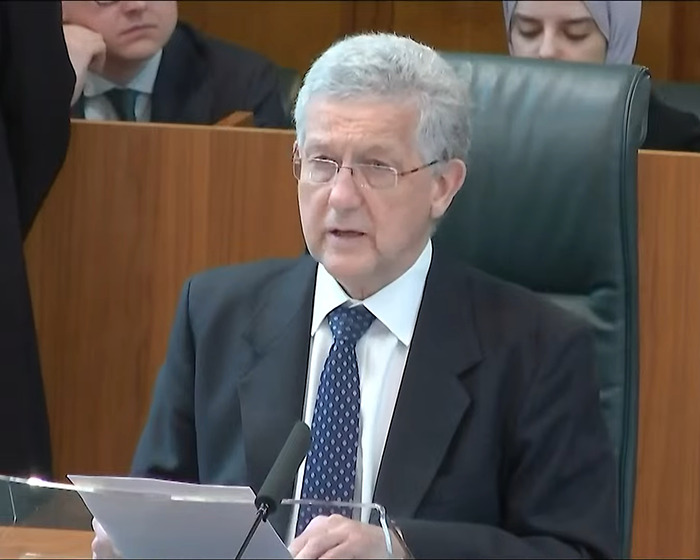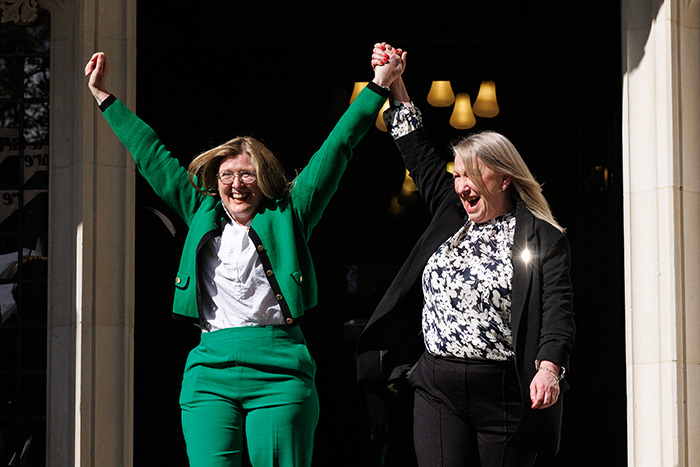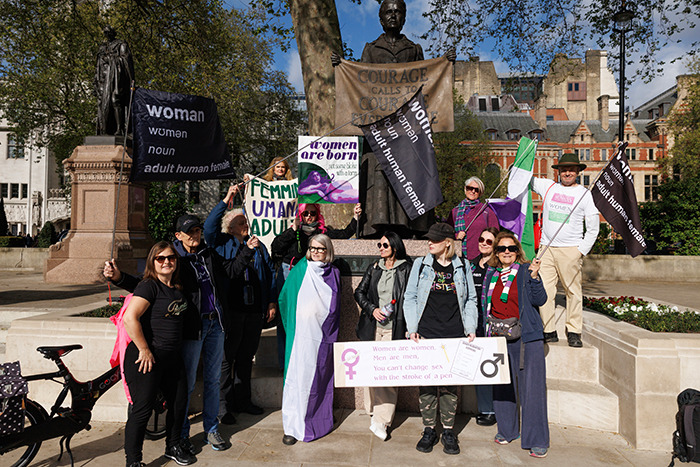JK Rowling has celebrated a ruling by the Supreme Court establishing that the legal definition of a woman is based on biological s*x and not on legally certified s*x.
In an 88-page ruling published on Wednesday (April 16), Britain’s top judges declared: “The definition of s*x in the Equality Act 2010 makes clear that the concept of s*x is binary, a person is either a woman or a man.”
“It took three extraordinary, tenacious Scottish women with an army behind them to get this case heard by the Supreme Court and, in winning, they’ve protected the rights of women and girls across the UK,” the Harry Potter author wrote.
Image credits: Tim P. Whitby/Getty Images
“Trans people have lost zero rights today, although I don’t doubt some (not all) will be furious that the Supreme Court upheld women’s s*x-based rights.
“@ForWomenScot, I’m so proud to know you,” she signed off, referencing the campaign group For Women Scotland (FWS), who celebrated the decision as a “victory” for women.
Rowling financially backed the activist group during the campaign.
Image credits: The Telegraph
The decision is the culmination of a legal battle between the Scottish government and activist groups over the definition of a “woman” in Scottish legislation mandating 50% female representation on public boards.
For Women Scotland launched a legal challenge and said ministers had included trans people as part of the 50% quota.
Lord Hodge said five Supreme Court justices had unanimously decided “the terms woman and s*x in the Equality Act refer to a biological woman and biological s*x.”
Image credits: Dan Kitwood/Getty Images
Image credits: jk_rowling
He recognised “the strength of feeling on both sides” and cautioned against seeing the judgment as a triumph for cisgender women over trans women, adding that the law still protects trans people against discrimination.
“The Equality Act gives transgender people protection not only against discrimination through the protected characteristics of gender reassignment, but also against direct discrimination, indirect discrimination, and harassment, in substance, in their acquired gender.”
Speaking in the Supreme Court, Lord Hodge said it was “our role to ascertain the meaning of the legislation which parliament has enacted to that end.”
Image credits: jk_rowling
The ruling is thought to have consequences on the application of gender rights, including how women-only spaces are allowed to operate.
It sought to overturn a decision by the Scottish courts in 2023 which found that treating someone with a gender recognition certificate (GRC) as a woman under the Equality Act was lawful.
The ruling will have implications in England, Scotland and Wales.
Image credits: jk_rowling
Primer Minister Sir Keir Starmer, the leader of the Labour Party, is yet to publicly address the ruling.
Conservative leader Kemi Badenoch has celebrated the ruling. “Saying ‘trans women are women’ was never true in fact and now isn’t true in law, either,” Badenoch wrote on social media.
“A victory for all of the women who faced personal ab*se or lost their jobs for stating the obvious.
“Women are women and men are men: you cannot change your biological s*x.
“The era of Keir Starmer telling us that some women have p*nises has come to an end. Hallelujah! Well done @ForWomenScot!”
Image credits: Dan Kitwood/Getty Images
The ruling was met with criticism by trans rights activists. Outside the court, a protester was heard shouting ,“Trans rights are human rights” and “Even if you k*ll every last one of us, another will be born tomorrow.”
Meanwhile, the Scottish Greens Party described the ruling as “deeply concerning for human rights.”
“This is a deeply concerning ruling for human rights and a huge blow to some of the most marginalized people in our society,” Scottish MP Maggie Chapman said.
“It could remove important protections and will leave many trans people and their loved ones deeply anxious and worried about how their lives will be affected and about what will come next.
“Trans people just want to be able to live their lives like any of us, without the fear of prejudice or violence, but today they have been badly let down.”









0 Comments